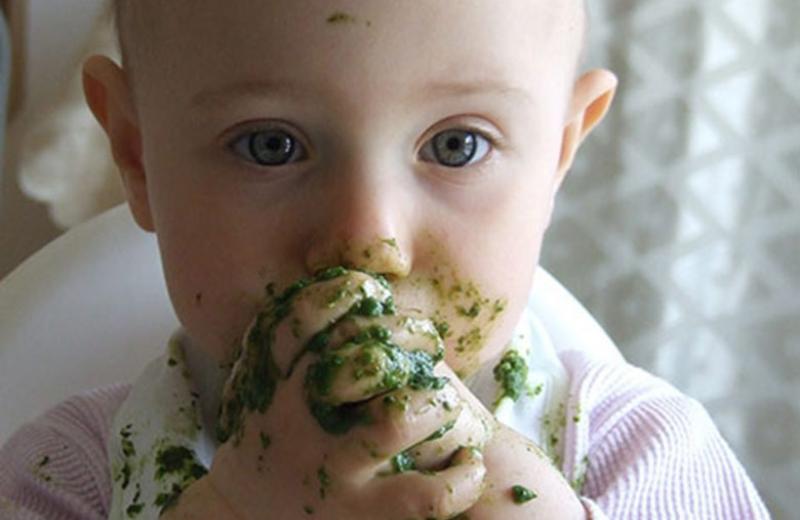Are you worried that your baby might develop a food allergy?
I was. A baby is at higher risk of developing an allergy if they have a parent or sibling with a food allergy, eczema, asthma or hay fever, or if the baby has severe eczema. My husband had various nut allergies when he was young, many of which he outgrew, but he still has a strong reaction to Brazil nuts. Given my husband’s history, my daughter is at higher risk of developing a food allergy. You might be a bit nervous about introducing certain foods to your baby – I was!
The foods most likely to be involved in food allergies are called “common food allergens.” They are:
- Eggs
- Milk and milk products
- Peanuts
- Seafood (fish, crustaceans, and shellfish)
- Sesame
- Soy
- Tree nuts (almond, Brazil nuts, cashews, pistachios, etc.)
- Wheat
As a dietitian, I have seen the advice on introducing common food allergens change – a lot! Years ago, it was thought best to wait to offer these foods until baby was a year old, or two years old, or even older. However, research over the past 10 years has shown us that there is no benefit to waiting that long. In fact, new research, especially research on peanuts, shows that earlier introduction may actually help to reduce risk of allergies. Wow!
What does this mean for feeding your baby?
The most current research supports these guidelines:
- Start offering solid foods when your baby is about six months old.
- Offer foods high in iron twice per day; iron is very important for babies. Examples include well-cooked meat, poultry, and fish; cooked eggs, lentils, beans, chickpeas and tofu; and peanut, tree nut, and seed butters. For more ideas, see “Pumping iron: First foods for building strong babies”.
- Don’t wait. You can offer common food allergens when baby is ready for solids, at around six months of age.
- Worried about allergy risk? Introduce common food allergens one at a time (other foods do not need to be introduced one at a time). In the event of an allergic reaction, symptoms often appear within minutes of eating the food, but they can also occur hours later.
- Worried that a food caused an allergic reaction? Stop offering that food and connect with your child’s doctor for a diagnosis. You can continue to offer other new foods to your baby, including other common food allergens.
When it was time to start our baby on solid foods, I was a little nervous about things like peanut butter. I made sure to offer these foods when my husband and I were both around, and I watched my daughter for signs of a reaction. Luckily, we have not yet seen any signs of allergy, and she has now been introduced a wide variety of common food allergens.
It was helpful to know where to go for help in case we had questions. Did you know that there is a Registered Dietitian at HealthLink BC who can support families who have concerns about food allergies? They are only a phone call away – just dial 8-1-1.
Looking for more information and support? HealthLink BC’s resource “Reducing Risk of Food Allergy in Your Baby” provides additional information on introducing common food allergens to infants.














Comments